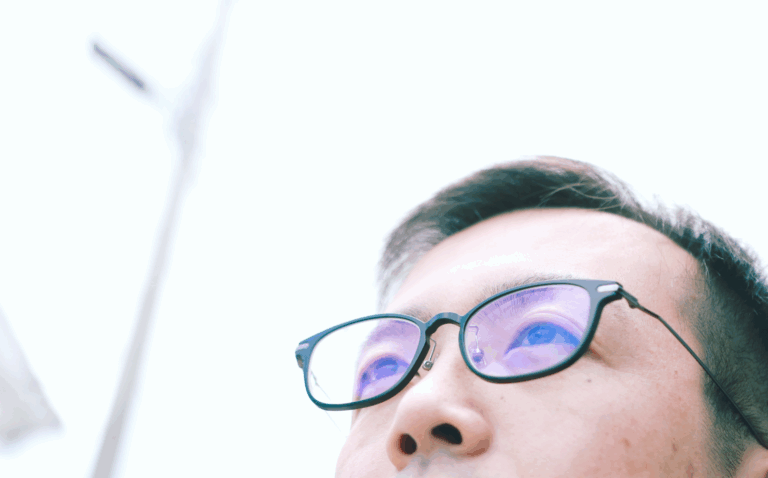Written by Stefani Koulovasilopoulos, Student OT. Edited by Erica Friesen, Student OT, and Jenni Diamond, OT Reg. (Ont.)

Blue light glasses are becoming increasingly popular as we spend more time on phones, computers, and other screens. Blue light glasses are sold as a solution to improve sleep quality and reduce eye strain, however, experts debate their effectiveness.
Blue light is a high-energy visible light that comes from both natural (sun) and artificial (screens) sources1. Blue light plays an important role for our bodies because it helps control and regulate our body’s internal clock, also known as our circadian rhythm, which tell us when to feel awake and when to feel sleepy1. During the day, blue light can be beneficial for boosting alertness, mood, and synchronizing our biological clock1,2. However, too much blue light at night can disrupt melatonin production (a hormone that makes us feel drowsy), disrupt our body’s internal clock by delaying the sleep-wake cycle, reduce sleepiness, and impact our overall sleep1,2,3. This makes it harder to fall asleep and affects how long and how well we sleep2,4.
Over time, using screens too much in the evening can lead to poor sleep, mood problems, and other health issues5. That’s why it is important to reduce screen time before bed and create healthy sleep habits.
Blue light glasses are a type of eyewear equipped with lenses that filter out or correct wavelengths of blue light6. They come in various tints, blocking a broad spectrum of blue light. These glasses have been said to reduce digital eye strain (e.g., reduce eye discomfort, vision changes, dry eyes), improve sleep quality and protect the eyes from potential long-term damage caused by extended screen time7,8. Let’s dive into what the research actually shows about the effectiveness of blue light glasses.
There has been growing interest in the use of blue light glasses as a tool to decrease blue light and improve sleep, however research on their effectiveness has shown mixed results, with some studies suggesting they have benefits and others suggesting they have no impact.
A recent study tested whether wearing blue light glasses before bed helped people sleep better9. While participants said they felt like they slept better (subjective reports), the actual measurement of sleep time and quality (objective results) did not show significant improvement9.
On the other hand, another study suggested there was evidence that blue light blocking glasses could reduce sleep onset latency (the time it takes for someone to fall asleep after going to bed) in patients with sleep disorders, jet lag, or variable shift work schedules10.
Although some individuals report they experience relief from eye strain when using blue light blocking glasses, the scientific community has not yet reached a clear consensus on their overall effectiveness specially relating to sleep.
If you or another person in your life is struggling with falling asleep or staying asleep at night, incorporating sleep hygiene practices (habits and practices that promote sleep quality), may provide the most comprehensive approach to improving sleep quality.
Here’s a few sleep strategies that can be used as a start11:
In summary, while blue light glasses may offer some benefits, the scientific evidence on their effectiveness remains mixed. A more effective approach to improve sleep is by focusing on healthy sleep hygiene habits, such as those outline above.
References:
Disclaimer: The content provided on this website is for informational and educational purposes only. It is not intended as a substitute for professional advice, diagnosis, or treatment. Always seek the advice of a qualified professional with any questions you have regarding your health.
Always follow the advice of your Primary Care Provider when making decisions that affect your health and well-being.